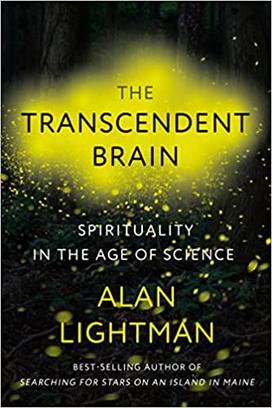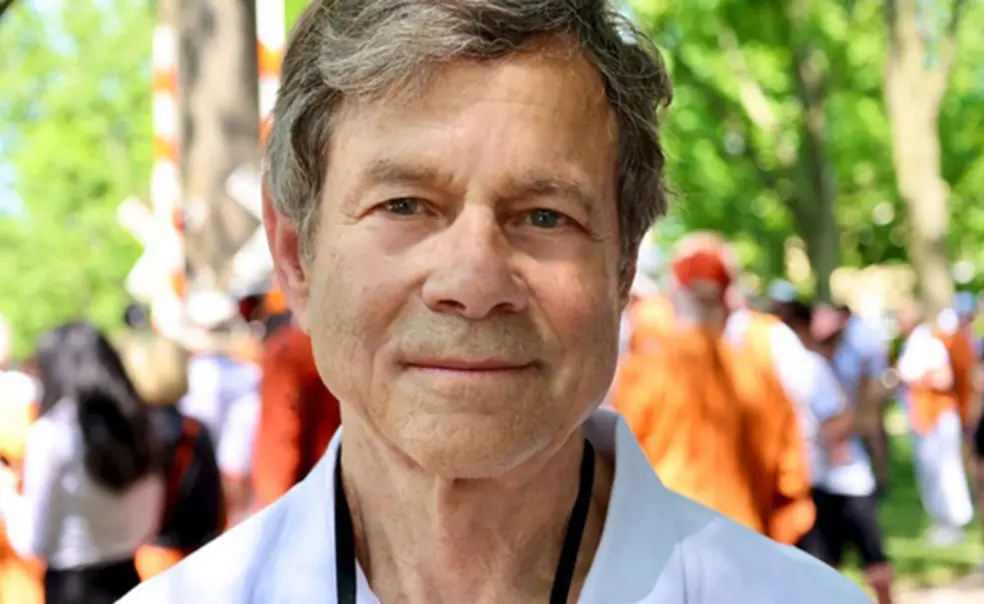In New PBS Series, Alan Lightman ’70 Searches for Meaning
‘How is it that a collection of atoms and molecules can give rise to complex human experiences?’
One moonless summer night in Maine, the theoretical physicist and bestselling novelist Alan Lightman ’70 got lost in the stars.
He was driving a small motorboat to an island when he stopped for a moment to look around. He turned off the boat’s engine, lay down, looked up — and felt himself falling into infinity.
“I felt like I was merging with the cosmos,” he recalls. “How do we understand experiences like this from a scientific point of view?”
This question is at the heart of Lightman’s upcoming miniseries for PBS, Searching: Our Quest for Meaning in the Age of Science. It is a question Lightman is perhaps uniquely equipped to address. One of the first MIT professors to receive a joint appointment in the sciences and the humanities, he has made signal contributions to the field of astrophysics while also publishing 25 books — including the international bestselling novel Einstein’s Dreams — and contributing to Harper’s, The New Yorker, and The Atlantic Monthly. In Searching, he crosses disciplines to confront some of the deepest questions humans face.
“How do human beings fit in the grand scheme of things?” Lightman asks. “How is it that a collection of atoms and molecules can give rise to the complex human experiences we have, like consciousness, falling in love, and feeling connected to nature?”
In the series — directed and produced by Geoff Haines-Stieles, who produced Carl Sagan’s Cosmos — Lightman travels to Italy to look at Galileo’s original telescope; France to see the cave paintings of Font-de-Gaume, created in 17,000 B.C.; and Switzerland to visit the world’s largest particle accelerator. He speaks with philosophers, ethicists, and faith leaders, including Nobel laureates, the Dalai Lama, and neuroscientist Robert Desimone *79 and philosopher and novelist Rebecca Goldstein *79.
“Our country has become extremely polarized in the last decade, and part of that polarization is the feeling that a scientific, quantitative understanding of the world is incompatible with — even diminishes — the human experience,” Lightman says. “That’s the context in which I began writing about this subject.”

“I’m a materialist because I believe that everything is made of atoms and molecules; that there’s no ethereal, nonmaterial substance in the cosmos,” he says. “But I also acknowledge that we have complicated human experiences. Like awe, like the appreciation of beauty, like feeling part of the rest of the cosmos. I would call these spiritual experiences.”
Growing up in Memphis, the son of a movie theater owner and a dance teacher, Lightman won statewide science fairs and built rockets in his free time — but he also wrote poetry and short stories, winning the National Council of Teachers of English literary award for the state of Tennessee.
“Who am I?” he asked in a poem when he was 12. “Will it matter to the sun’s rays when I die?”
At Princeton, he majored in physics but took as many humanities courses as he did science courses. He studied Nietzsche under Walter Kaufmann, Shakespeare under Alan Downer. As much as the courses he took, he savored Princeton’s serenity and physical beauty.
“I just loved walking along the paths of the campus, usually by myself, just musing,” he recalled. “I found that the place itself encouraged a contemplative, reflective disposition.”
Lightman now lives in Massachusetts, a mile from Walden Pond. The first episode of Searching will begin appearing on public television stations in January and will be available for streaming Jan. 7.
Watch the trailer for Searching: Our Quest for Meaning in the Age of Science:










No responses yet